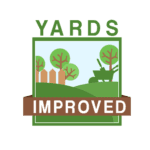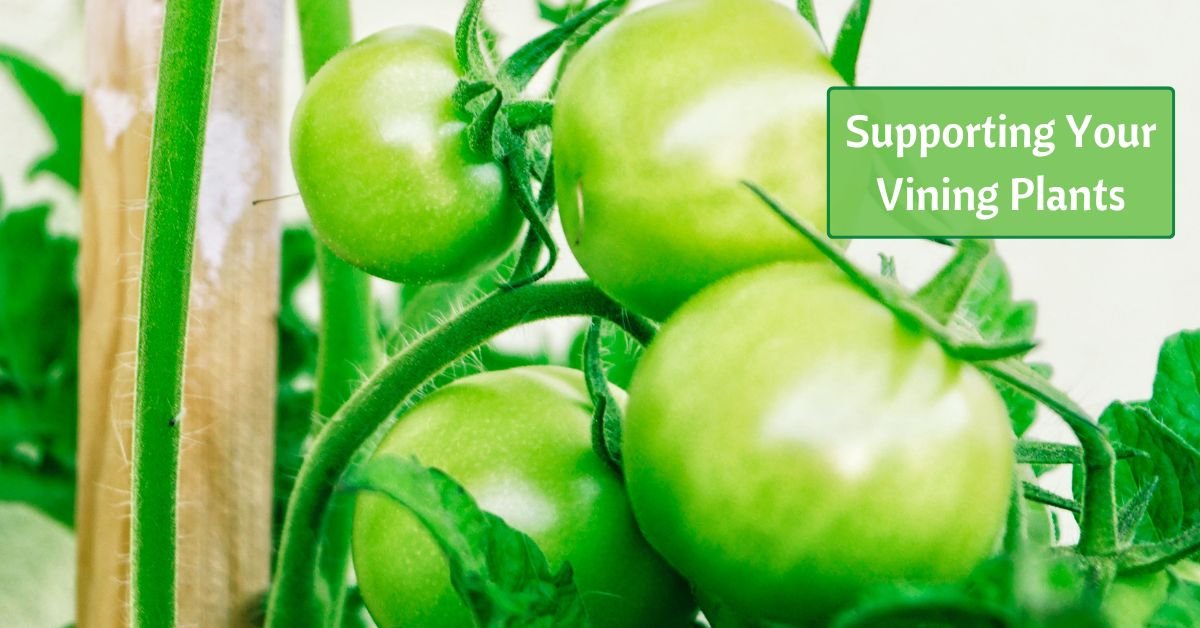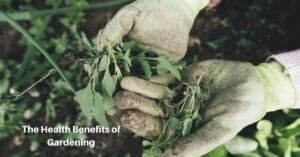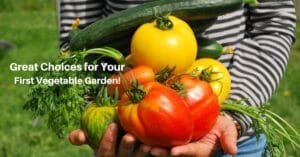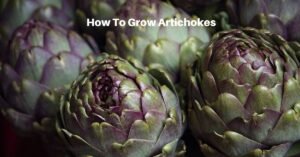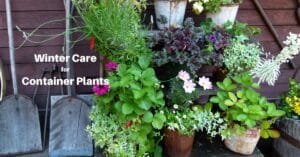You probably already know that nurturing vining crops like watermelon, beans, and cantaloupe can be incredibly rewarding. But you’re also aware that these plants often need a little extra care to reach their full potential.
In this post, we’re going to explore various ways to support your vining plants, from trellises and cages to stakes, and more. Let’s make your garden thrive!
Why Do Vining Plants Need Support?
Before we dive into the world of support structures, let’s first understand why your vining plants need a helping hand. Here are some compelling reasons:
Encourages Healthy Growth
Vining plants naturally climb and sprawl. Providing support lets them grow upward, leading to healthier growth and better fruit production.
Disease Prevention
When the fruits come into contact with the ground, they can be susceptible to diseases and rot. Support structures keep them off the ground, reducing the risk of infection.
Simplifies Harvesting
Elevated vines make it easier to spot and pick ripe produce. No more bending over or struggling to find those hidden gems.
Space Efficiency
Vertical gardening makes the most of your limited garden space, enabling you to grow more crops in less area – perfect for small garden spaces.
Now, let’s explore some of the popular support options for your vining plants.
Trellises: Reaching New Heights
Trellises are a gardener’s best friend when it comes to supporting vining plants. They’re like a ladder for your crops. Here’s why trellises are fantastic:
Space Savers
Trellises encourage vertical growth, a game-changer for small gardens with limited space.
Better Airflow
Vines growing up trellises enjoy improved air circulation, reducing the risk of fungal diseases and enhancing pollination.
Harvesting Made Easy
With fruits hanging freely on the trellis, you’ll spend less time searching for ripe produce and more time enjoying your harvest.
Trellises are perfect for beans, peas, cucumbers, and some tomato varieties. Plants with tendrils or stems that can be tied or woven through the trellis grid benefit greatly from this support.
Cages: The Stalwart Guardians
Cages are like bodyguards for your vining plants. They offer sturdy 360-degree support, ensuring your crops are safe and sound. Here’s why cages are a gardener’s go-to:
Stability
Cages provide robust support, preventing your plants from falling over under the weight of their fruit, especially for those heavy-bearing varieties like beefsteak tomatoes.
Uniform Growth
Your plants will grow uniformly, and their fruits will stay off the ground, making them less susceptible to pests and diseases.
Easy Maintenance
Pruning and maintenance become a breeze with the structure of a cage, giving you easy access to the entire plant.
Improved Airflow
Good air circulation reduces the risk of diseases, and cages allow for proper ventilation throughout the plant.
Cages are particularly useful for “determinate” tomato varieties – those that are more compact and appreciate this structured support.
Stakes: The Classic Choice
Stakes are the traditional gardener’s choice for providing support. They are simple and versatile. Here’s why you should consider them:
Simplicity
Stakes are easy to set up and use, providing individual guidance for each vine.
Budget-Friendly
Stakes won’t break the bank, making them an ideal choice for gardeners on a budget.
Great for Tall Varieties
They’re particularly suitable for tall vining crops like indeterminate tomatoes and pole beans, helping them grow upright and strong.
Improved Air Circulation
Like other forms of support, stakes allow excellent airflow around your plants, reducing the risk of diseases.
Stakes are versatile and can be used for a wide range of vining plants, especially those with a single central stem that needs support to prevent bending or breaking.
Supporting your vining plants is a crucial part of successful gardening. Each type of support structure – trellises, cages, stakes, and more – offers unique advantages. Your choice depends on the type of plant and the space you have available.
The right support not only helps your plants grow but also simplifies maintenance and enhances the overall appearance of your garden. Whether you go for the classic simplicity of stakes, the sturdy reliability of cages, or the fancy reach of trellises, providing the right support is your key to a thriving garden with bountiful harvests.
Experiment with different support options in your garden, and you’ll soon discover the perfect combination that suits your gardening style and your vining plants’ needs.
